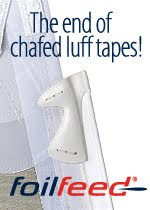 Open letter from Brad Butterworth, seven-time participant to the America’s Cup and four-time winner
Open letter from Brad Butterworth, seven-time participant to the America’s Cup and four-time winnerIn Defence of Mr. Schuyler’s Deed
Some have been calling for a rewrite of the America’s Cup Deed of Gift, offering the Defender their own vision for the sailing competition. These shrill calls have been common before every match in recent times, usually from those with no record of success in the Cup. Claims of imminent death of America’s Cup competition have always proven to be greatly exaggerated.
Two American yacht clubs: the New York Yacht Club and the San Diego Yacht Club held the America’s Cup between them for 140 years. For them everything was perfect, “the wind was in their sails,” as some would say. There were no calls then to strip the winner of its trusteeship, to strip the winner of organising the next regatta or for an independent entity to manage the America’s Cup (although they perhaps did pass a few of those Trustee Interpretive Resolutions to keep the challengers at bay.) Now the Cup is again in foreign hands and after nine failed American challenges to get the Cup back – all failing even to make it to the match – it is time (according to some Americans and their fellow travellers) while their tenth challenge is in progress to rewrite the Deed of Gift; to strip the winner of its fruits of victory, making it easier for a challenger to win. If the Deed and the competition it created are really that defective, where were all those reforms when the Cup was in American hands? The answer of course is that it is not defective. The answer is that a few are still having difficulty adjusting to losing the Cup and failing to get it back again. They are now seeking to make winning it easier.
It is important not to judge and write off the competition based on the present difficulties, which will soon pass, but instead to judge with the wider perspective of 150 years of competition. Yes, there have been in our time two rogue challenges without mutual consent and both of those challengers dragged the competition through the courts, but within the 150 year time frame of the competition, these are only brief exceptions, although we all agree it is twice too many. If there is to be a change, all that is needed to help keep disputes out of the courts is to add a simple arbitration clause to the Deed for speedy dispute resolution within the sport so that competition remains on the water. For sure the Deed is not perfect, but it is hardly broken down and in need of major surgery or the wholesale butchery that some now propose.
The mutual consent clause is the key to the Deed, it enables the competition to move and respond to changing times and circumstances. What may look like a good idea now may not be in 10, 50 or 100 years time. The last thing any generation should do is lock in and impose its will on future generations. If anyone wants to manage the competition differently – go and win the Cup and agree it with your challenger of record, it is really that simple. But please don’t pretend to be George Schuyler and paste the vision of what you think the America’s Cup should be on to his Deed. No one is stopping anyone from acquiring a trophy, pen and paper, and creating another competition. Just don’t try to steal Mr Schulyer’s competition to seek credibility for your own.
The America’s Cup is a tough demanding competition. It is, to use the words of my friend and broadcaster P.J. Montgomery, “the Everest of sailing”. These days, however, anyone’s granny can get dragged up Everest for a fee. The Cup, to continue PJ’s climbing analogy, is more like K2: difficult, technical and merciless, and must remain so. The old phrase “there is no second” truly captures the demanding and ruthless spirit of the competition. Defeating the Defender with all its advantages is an essential part of the foundation, history and fabric of the Cup. For those who seek a level playing field, go and race in any of the numerous competitions that exist in the world. Of course what often happens are those that are successful, end up competing in the America’s Cup because it is the ultimate sailing challenge and the ultimate proving ground, with real rewards for the successful. Lowering the mountain serves no one.
When I think of Larry Ellison’s litigious challenge, I am reminded of a comment made by my old friend Dennis Conner in his great book of 1998 “The America’s Cup: The History of Sailing’s Greatest Competition in the Twentieth Century”. He said of the lack of success of our early Kiwi challenges for the Cup:
“Sir Michael [Fay], however would be condemned to repeat the past: This “backdoor man,” who came to Perth with a plastic 12-Metre in 1986-87, and to San Diego with a superyacht in 1988, returned to San Diego in 1992, as we will see, with an oddly designed boat that flew and jibed its spinnaker in an unorthodox fashion. Once the Kiwis came in through the “front door” in 1995, they left with the America’s Cup.”
Great sportsmen seek victory on the field of play, or in our sport; on the high seas. A sportsman seeking to win through the courts or through what Dennis called the “backdoor” only demeans themselves as sportsmen and taints any victory, as well as the sport.
Having challenged for and defended the America’s Cup successfully, I have always found it has been won by designing and building the fastest boat and sailing with the best team. It is hard to win, as it should be for such a trophy. Reducing the challenge might make the conquest easier, but gone is the attraction and achievement.
Changing the Deed to make it easier for challengers to win only cheapens the America’s Cup and reduces George Schuyler’s challenge to succeeding generations of yachtsmen and yachtswomen to emulate America’s 1851 victory to the realms of the ordinary and mundane. - http://www.alinghi.com







